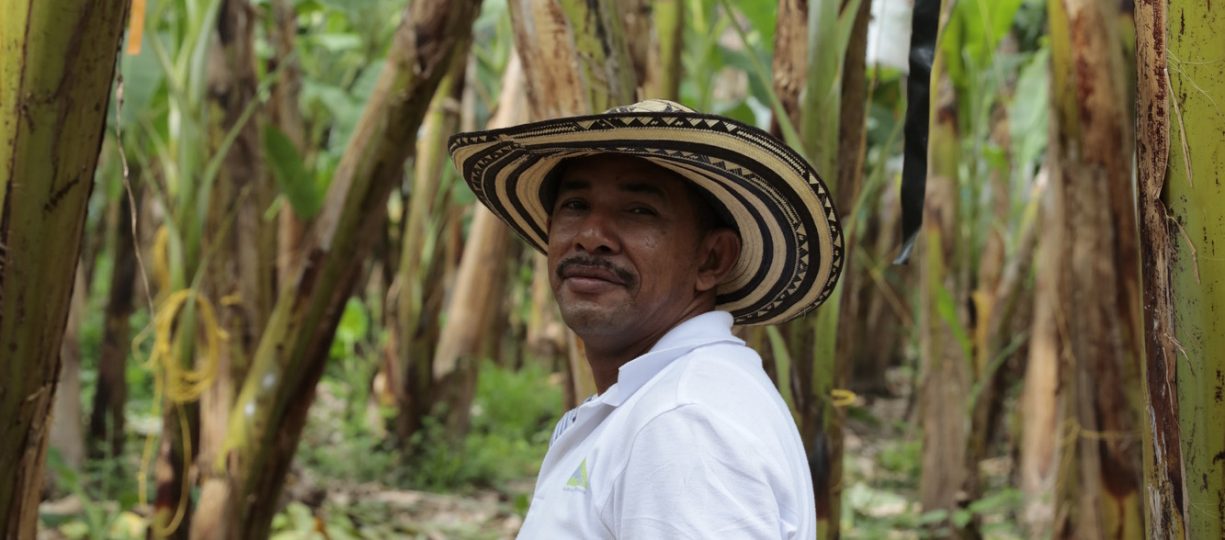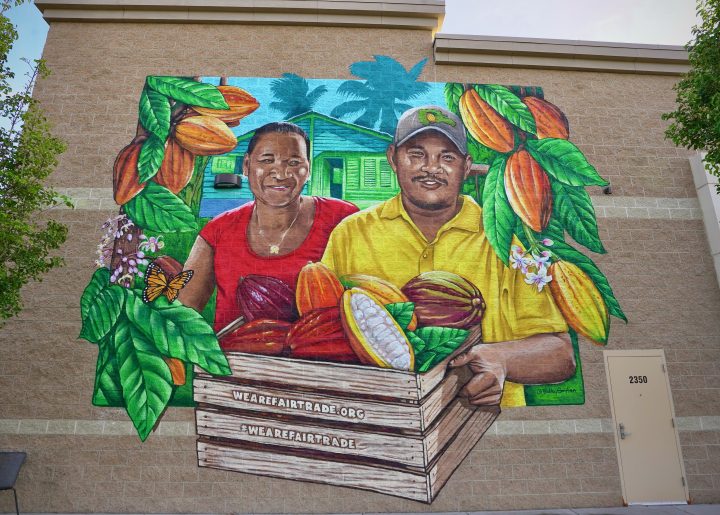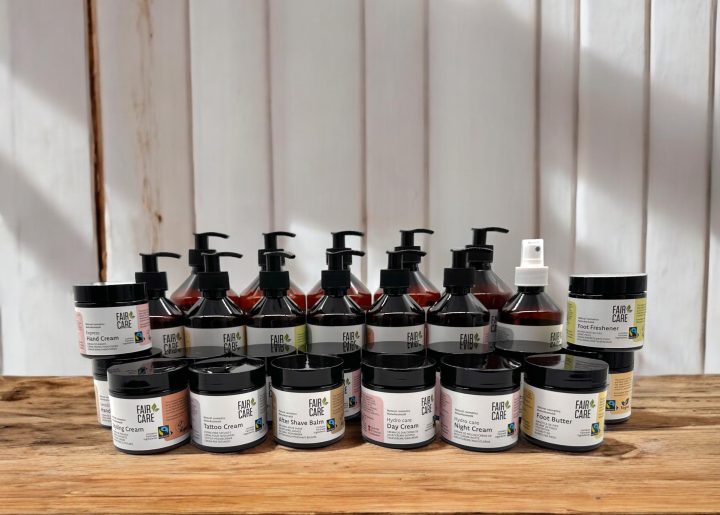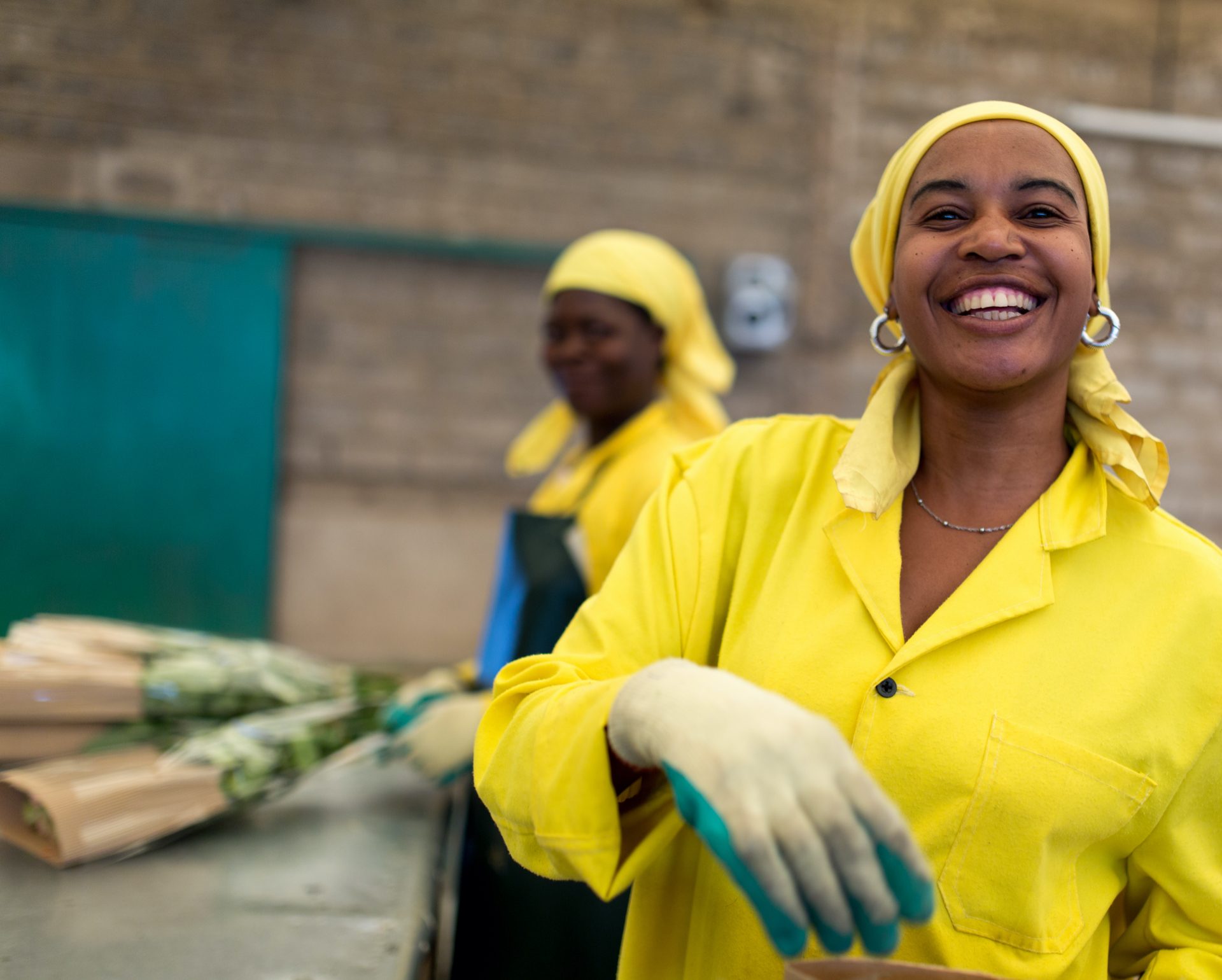Protecting Farmers From The Climate Crisis: A Fairtrade Priority

Fairtrade announced a partnership to explore the viability of offering climate risk insurance to Fairtrade smallholder farmers.
Bringing the voice of smallholder farmers to the UN Climate Change Conference (COP25) currently taking place in Madrid, Fairtrade International and the Munich Climate Insurance Initiative (MCII) are highlighting the devastating effects of extreme weather events such as storms, hurricanes, cyclones and floods, which are increasingly exacerbated by climate change and disproportionately impact farmers in developing countries. During a joint side event today in the German pavilion, the two organizations announced that they are working together to explore the viability of offering climate risk insurance to Fairtrade smallholder farmers.
Climate change isn’t fair. The poorest communities, which have the smallest carbon footprints and contribute the least to climate change, are usually hit the hardest. Smallholder farmers in developing countries belong to this group. Hurricanes, cyclones, droughts, floods and other extreme weather events are affecting crop yields of smallholder farmers and, in some cases, wiping away their very source of livelihood.
Fairtrade certified organizations have been no exception. For instance, in September 2017, Hurricane Irma decimated the harvest of Fairtrade certified banana organizations in the Caribbean. More recently in March 2019, Cyclone Idai caused massive flooding in Malawi, destroying smallholder farms and crops — among them were several Fairtrade certified sugar cooperatives.
“Many people were left destitute as both ripe crops ready for harvesting and livestock were washed away. And as if this was not enough, many houses collapsed, leaving numerous household properties destroyed and even lives lost. Amongst the worst affected were the famers and their families that live and tend their crops along the Shire River and nearby small rivers of Mantchombe, M’thumba and Mwanza,” explains Rossettie Gullo, Administrative Assistant at Kasinthula, a Fairtrade certified sugar cooperative in Malawi.
Fairtrade: increasing farmers’ resilience to climate change
In order to continue producing crops and sustaining their livelihoods, farmers need to adapt and build their communities’ resilience to the impacts of climate change.
In addition to following the Fairtrade environmental standards that promote biodiversity, water management and forest protection – all of which contribute in some way to climate change mitigation or adaptation – farmers can use their Fairtrade Premium to cope with current or anticipated climate-related challenges. Projects are identified by producer organizations themselves based on their own risk assessments, and include tree planting, irrigation, crop diversification and clean energy. These steps are more sustainable on a local level but also contribute to the global fight against climate change.
In addition, Fairtrade producer networks have set up climate academies in Latin America, Africa and Asia Pacific regions in order to train farmers in adaptation best practices, develop demonstration farms, and share their knowledge with others. For instance, new solar-powered weather stations are giving farmers in India, Indonesia, Laos and Vietnam important data about weather patterns so they can adjust their inputs and irrigation accordingly.
“Climate change is a reality for us,” says Albeiro Alfonso “Foncho” Cantillo, a member of COOBAFRIO, a Fairtrade certified cooperative in the region of Magdalena, Colombia. “Raining periods are becoming shorter and shorter while dry periods are getting longer. Rains are accompanied by ever stronger winds. I have one hectare of land under banana cultivation and 70 percent of this cultivation area was recently affected by these erratic weather conditions. Thanks to Fairtrade, we are able to implement projects to mitigate the effects of climate change.”
Lack of insurance results in extreme vulnerability
But despite the benefits brought about by Fairtrade, it is not possible to protect farmers from devastating losses caused by extreme weather events such as hurricanes or floods. In these cases, climate risk insurance can provide an adequate safety net.
Climate risk insurance transfers economic losses caused by extreme weather events from individuals and organizations to insurers or other risk pooling entities. This kind of specialized insurance, out of the reach of most smallholder farmers, provides protection against the loss and damage of assets and livelihoods.
This is why Fairtrade International and MCII have partnered to explore the possibility of designing a climate insurance risk program for smallholder farmers that are part of a Fairtrade certified cooperative.
“Climate risk insurance will reinforce the adaptation support that Fairtrade provides to its smallholder farmers. It will go a long way in strengthening the resilience and adaptive capacity of these farmers,” said Lannette Chiti, Senior Climate Change Advisor for Fairtrade International.
Going forward: Exploring climate risk insurance for Fairtrade farmers
Fairtrade International and MCII will be entering into a Memorandum of Understanding to launch a pilot project in one of Latin America’s coastal regions that has been frequently hit by hurricanes. The pilot project will be preceded by a feasibility study to assess Fairtrade farmers’ needs, conduct risk modelling and define a preliminary insurance product and business model.
“Both our organizations want to design climate risk insurance solutions for Fairtrade certified producers. Smallholder farmers worldwide are in need for better risk management and risk sharing mechanisms to increase their resilience to climate risk. We look forward to working with Fairtrade to make this a reality,” says Sönke Kreft, Executive Director of MCII.
For more information, please contact: Lannette Chiti, Senior Advisor Climate Change
Topics
We’re in this together
Fairtrade America partners with brands on the journey to certification and beyond. We can help with everything from finding a certified supply chain to marketing your newly certified product.
Get in Touch





